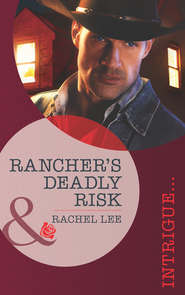По всем вопросам обращайтесь на: info@litportal.ru
(©) 2003-2025.
✖
Wildcard
Настройки чтения
Размер шрифта
Высота строк
Поля
In fact, Hoover had headed the General Intelligence Division in 1920 under Attorney General Mitchell Palmer, and Hoover’s index card files had provided the information for the infamous Palmer Raids of 1920. In those raids, the Justice Department picked up thousands of alleged alien radicals across the country. Most were in fact citizens. Fewer than six hundred were ultimately deported.
Four years later, despite his words to Harlan Stone, Hoover had wasted no time in setting his agents to work developing files on suspected communists, labor leaders, and other groups and individuals whom he deemed to be anti-American.
That practice had swelled into the COINTELPRO excesses of the 1950s and 60s, until Congress and an irate public finally called for an end to domestic espionage. There were some who said the lack of such domestic espionage had enabled Al Qaeda terrorists to escape notice and kill three thousand Americans.
Tom knew better. The Bureau still kept tabs on violent organizations and suspicious resident aliens. As a congressional inquiry had shown, there had been enough information floating among the various agencies to prevent the 9/11 attacks. Had that information been collated and presented in a single briefing, the plot and the plotters would have been obvious. It had not been a failure of data collection but rather a failure of data management. The pieces of the puzzle had been spread across too many desks in too many agencies.
The file in Tom’s hands was supposed to be part of the new-and-improved data management system. Cross-indexed on a secure database, the idea was that an agent could follow hyperlinked threads between various groups, looking for motives and capabilities that matched a given pattern. At Miriam’s request, an agent had searched for individuals or groups with both the motive and means to commit murder in order to keep Grant Lawrence out of the White House. The results were the scores of files on his and Miriam’s desks, and the one in his hands.
The Idaho Freedom Militia was archetypal in its ordinariness. Its founder was Wesley Aaron Dixon, a West Point graduate who had grown disillusioned with army life and left for a sheep ranch outside Boise. The file photos were unremarkable. Dixon looked about like Tom expected of a sheep rancher: grizzled and lean, with a slight middle-age paunch.
The group’s ideology was apparently cookie-cutter Western individualism: the government in Washington was too powerful; the Supreme Court was counter-democratic; the nation should return to its federalist roots; government was inherently bad, and so on.
One sentence was highlighted, a quote from a letter to the editor Dixon had written in 1998: “Every person should be trained and ready to defend himself and his community against the excesses of Washington, and to strike blows against a government which conspires daily to undermine his private property and his family.”
With that one sentence, Dixon had earned an FBI file for himself and the Idaho Freedom Militia. Such was the tidal wave of information through which Miriam and Tom were wading, for no other reason than to establish that the FBI had, indeed, left no stone unturned.
An hour later, Miriam returned. “Find anything?”
“Typical stuff,” Tom said, finishing the file. “Except for a letter to the editor, it’s pretty much mainstream libertarian.”
Miriam leaned over to see which file he was scanning. “Except for the part about women.”
Tom scanned down to the passage. It was a copy of a personal letter to a former militia member. Apparently the man had turned the letter over to the FBI after having been dismissed from the organization. From the context, the man had been kicked out because his wife had taken a job.
“The proper role of the woman,” Dixon had written, “is to bear and care for the children and the home. When a man allows her to abdicate that role, he allows her to betray God’s plan for womanhood, abdicates his own role as head of the house, and undermines the Divine balance of the family.”
“Everyone’s entitled to an opinion, I guess,” Tom said. “Even a stupid one.”
“Yeah, well, Dixon kicked this guy out of the militia, which is more a favor than a punishment, as I see it. But he also blackballed the guy around town. Guy lost his job, couldn’t get another. He finally had to move to Oregon and start over. All because his wife took a job.”
Tom shook his head. Having grown up in small towns, he could see how it had happened. Close-knit communities were a two-edged sword. They could rally around someone in times of grief, as the townspeople had done with him and his father after his mother died. But they could also cut someone out of the herd over the most trivial matter. Or, as had been the case with his father two years later, the not-so-trivial matters.
“So why did this group get flagged?” Tom asked.
Miriam shook her head. “Damned if I know. I didn’t see anything that connects Dixon to Grant Lawrence. But the computer spat it out, so we have to go through it. No stone unturned, right?”
“Yeah,” Tom said, looking at his watch. He took three more files from the pile. “Look, it’s almost ten. I’m going to make this my bedtime reading. And you need to get some sleep, Miriam. Sitting here all night stewing isn’t going to do the Bureau, Grant, Terry or me any good.”
“You’re right,” she said, reaching for a handful of files to take home with her. “Life will be better in the morning, right?”
Tom forced a smile. “At the very least, it’ll be a different day.”
Watermill, Long Island
Edward Morgan flipped through the channels until he hit on an all-sports network running classic NFL films. This particular episode was the famous 1968 “Heidi Bowl” game between the New York Jets and the Oakland Raiders, so named because the network had cut away from the final minutes of the game so as not to overlap its scheduled broadcast of the movie Heidi.
“Oh, God,” Rice said, looking at the screen. “I remember that damn game. Freshman year. In fact, we had a bet on it.”
“Twenty bucks,” Morgan said. “I got stuck with the Raiders, even though the Jets were my home team, because Joe Namath was an Alabama graduate and there was no way you were going to root against an Alabama man.”
Rice nodded. “Cost me twenty bucks, too.”
“I seem to remember you got that money back in the playoffs,” Morgan said. “And we made a killing when the Jets won the Super Bowl. You had half of the brothers betting the Colts.”
Rice laughed. “Pledge year got real easy after that. They all still owed us money.”
They fell silent for a few minutes, watching the game film. It had been a bizarre time for Harrison Rice. Most of his high school friends had been drafted and were headed for Vietnam. Rice’s father, a banker in Birmingham, had forced his son to forgo football in his senior year and focus on his schoolwork. While obeying his father had hurt at the time—Debbie Mays had dumped him for someone who could get her a letter sweater—it had paid dividends. His grades had shot up enough that he could follow in his father’s footsteps at Yale, and the student deferment had kept him out of the rice paddies.
As the country had torn itself apart, Rice and Morgan had pulled all-nighters, studying economics and finance, Morgan poking fun at Rice’s Alabama drawl, while Rice needled Morgan about his silver spoon childhood. Rice was a big man, and had been even then. Morgan was slight and half-a-head shorter. They were in many ways as different as night and day, and yet in the late nights pouring over expectation curves and compound return formulae, they had forged a bond.
Rice had gone back to Birmingham after college to work in his father’s bank, then moved into state politics. Morgan had gone on to Harvard Business School and a stellar career in international finance. But they’d always kept in touch, had always been the anchors to which each could turn when the pace of achievement became too frantic and one of them needed to get away and decompress. Just like tonight.
“What a shame about Lawrence,” Edward said.
“Yes,” Rice agreed. “I wanted to win. But not this way. Never this way. Christ, he’s got two little girls who are probably already scarred for life from all the shit that’s happened. And now this.”
Edward nodded silently and seemed about to speak, then stopped and looked at the television. It was what he had always done when there was something he wanted to say to someone but was afraid of offending him.
“Oh, come on,” Rice said. “You know that doesn’t work with me. It never has.”
“Well, it’s just…that’s exactly it. The girls. Their mom is dead. And all the mess last year. Why put them through the hell of a presidential campaign? Why not at least wait four years for life to settle some? I’m not saying he deserved what happened. Hell, no. Nobody does. But why take the risk?”
Rice could see his point. He’d had the same thought last night. Once the wave of sympathy passed, he was sure the press would pick up the same theme. A psychiatrist would probably say it was a way of dealing with the sense of collective grief. Blame the victim. Nihil mea culpa.
“Well, let’s just hope he pulls through,” Rice said. “The girls need him. And frankly, the country needs men like Grant Lawrence. I don’t always agree with him, but I can’t question his convictions or his courage.”
Edward shook his head. “You’re not talking to the press here, Harrison. It’s me. Don’t tell me a part of you didn’t jump for joy when you realized he was out of the race.”
“Of course it did,” Rice said. “And that part of me makes me sick. I don’t like to think I’m the kind of man who could feel that way.”
“None of us does,” Edward agreed. “But we are. At some level, we’re all looking out for number one.”
“So what are you saying?” Rice asked, anger rising in his belly. “That I should be celebrating because a friend of mine was shot? Sorry. I can’t do that. It was wrong.”
“Whoa,” Edward said, holding up a hand. “I’m not saying that at all. All I’m saying is, you didn’t pull that trigger. You didn’t make it happen. And yes, it’s a damn shame. But it’s also an opportunity.”
“A curse, you mean. Even if I win, I’ll be living under his shadow. Every decision I make will be weighed against what people think Grant Lawrence would have done. It’s almost not worth it.”
“That’s bullshit, Harrison. And you know it.” He paused for a moment. “Look, remember that high school game you told me about, the one where you finally got to play because the starting quarterback got hurt?”
Rice nodded. It was the only time he’d played in three years of high school football. Homecoming game. Junior year. Brad Mellows had sprained an ankle halfway through the fourth quarter, and the coach had nodded to Rice. He remembered the churning in his stomach as he’d strapped on his helmet and jogged onto the field. They were three points behind and driving down the field. On the first play, he’d almost tripped over his own feet as he’d handed the ball to the fullback, but big Buck Ledger had bulled his way to a first down.
Rice had called an option on the next play, and as he’d swept around the right side and prepared to pitch the ball to Gary Thomas, he’d seen a crease form in front of him. He’d tucked the ball in, turned upfield and burst into the open. Seventeen yards later, he’d crossed the goal line, winning the game and, briefly, Debbie Mays’s heart.
“Nobody said, ‘What would the other guy have done?’ then, did they?” Edward asked. “No, they talked about what you had done. Stepping up to make a play when the team needed you.”
“Yes,” Rice said.











